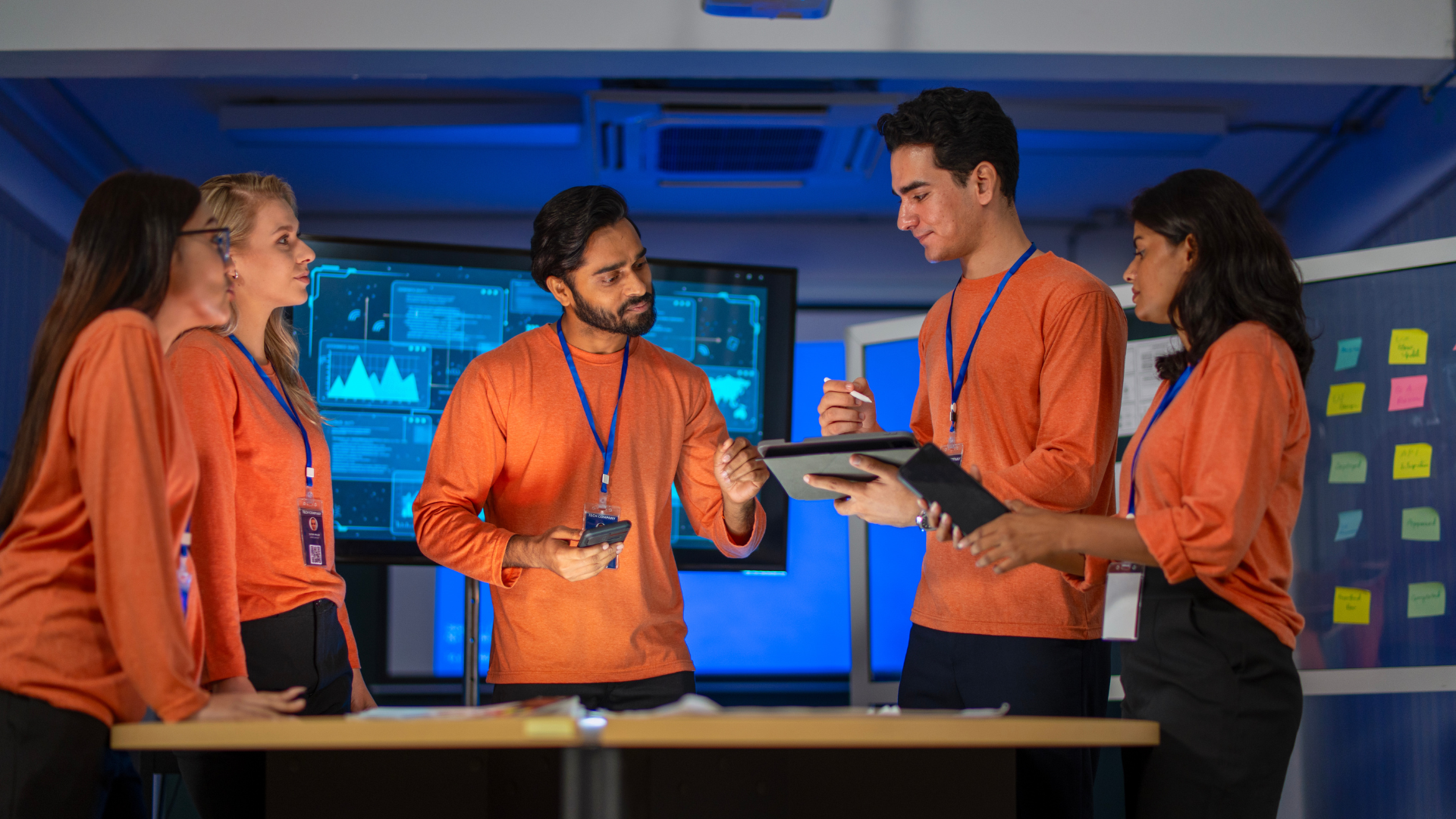As digital transformation accelerates, the way teams collaborate is undergoing a radical evolution. The future of work is not just remote or hybrid it’s intelligent, adaptive, and profoundly intertwined with artificial intelligence. AI collaboration tools are reshaping workflows, breaking down traditional barriers, and unlocking unprecedented productivity and creativity. This new paradigm promises to empower teams like never before, fostering seamless communication, data-driven decision-making, and enhanced innovation.
AI and the Evolution of Team Collaboration
Historically, teamwork has depended heavily on manual coordination emails, meetings, spreadsheets, and disparate software tools. These conventional workflows often suffer from information silos, communication lag, and repetitive tasks. The entry of AI into collaboration ecosystems is revolutionizing how teams organize, ideate, and execute projects.
AI-powered platforms now act as intelligent assistants that:
- Automate routine tasks like scheduling, reminders, and follow-ups.
- Provide real-time insights by analyzing vast data from project management and communication channels.
- Facilitate smarter decision-making through predictive analytics.
- Enable dynamic resource allocation matching skills and workload efficiently.
This shift is not about replacing human workers but augmenting them, liberating creative and strategic potential by eradicating mundane tasks.
Key Features of Next-Generation AI Team Workflows

1. Intelligent Communication Hub
Next-gen AI collaboration tools integrate chat, video calls, document sharing, and task tracking into single unified platforms. AI enhances these hubs by summarizing meeting notes live, detecting action items, and flagging urgent messages. This streamlines communication flow, reduces misinterpretations, and keeps everyone in sync effortlessly.
2. Automated Project Management
AI automates schedule optimization, deadline tracking, and risk assessment. Machine learning models predict project bottlenecks and suggest resource reallocations, helping teams pivot quickly before problems escalate. Visual dashboards powered by AI visualize progress and forecast project outcomes dynamically.
3. Enhanced Ideation and Creativity
Some platforms now embed generative AI technologies that assist brainstorming and ideation in real time. By analyzing context and past projects, AI suggests fresh ideas, alternative approaches, or even drafts initial content—opening new creative pathways for teams across industries.
4. Seamless Cross-Functional Collaboration
AI fosters collaboration across diverse teams by breaking down data silos and promoting knowledge-sharing. Natural language processing (NLP) models translate jargon and unify terminology, making technical, marketing, design, and executive teams more interoperable.
Benefits of AI-Driven Collaboration Workflows
Adopting AI-powered teamwork workflows translates into concrete business advantages:
- Increased Productivity: Automating repetitive tasks and smarter coordination reduce time wasted on administrative overhead, letting teams focus on value-driven activities.
- Better Decision-Making: Data-driven suggestions minimize guesswork, enabling proactive strategy adjustments and risk mitigation.
- Improved Flexibility: AI workflows adapt dynamically to changing priorities and resource availability, supporting agile methodologies seamlessly.
- Enhanced Creativity: AI-assisted ideation tools inspire innovative solutions by bringing new perspectives and scaling brainstorming capacity.
- Stronger Team Engagement: By automating menial tasks, teams experience less burnout and more job satisfaction, fostering motivation and retention.
Real-World Applications and Use Cases
Leading companies are already leveraging AI collaboration to streamline their operations:
- Software Development: AI-driven code assistants enhance pair programming and automate testing workflows to speed product iterations.
- Marketing Teams: AI analyzes campaign data to generate real-time performance insights and recommend content optimizations.
- Creative Agencies: Generative AI supports ideation, storyboarding, and even client presentations, enhancing the creative process.
- Financial Services: Risk assessment models embedded in workflows accelerate compliance checks and fraud detection.
These examples illustrate AI’s ability to tailor workflows to industry-specific needs while maintaining a centralized collaborative environment.
Preparing Your Team for AI Collaboration

Successful AI collaboration demands thoughtful integration and change management:
- Educate and Train: Teams must understand AI’s role as a tool for augmentation—not replacement—and learn how to leverage its capabilities efficiently.
- Customize AI Tools: Select platforms that allow flexible customization to match workflows and organizational culture.
- Promote Transparency: Clarify AI decision-making processes where transparency builds trust across teams.
- Iterate and Optimize: Regularly review AI tool performance and user feedback to refine and improve collaboration processes.
When embedded thoughtfully, AI collaboration platforms become an extension of team culture—amplifying human strengths rather than imposing rigid structures.
Future Outlook: Towards Autonomous Workflow Orchestration
The next frontier of AI collaboration will transcend current capabilities, ushering in autonomous workflow orchestration. This means AI systems that dynamically:
- Reorganize team tasks based on real-time productivity and employee wellbeing metrics.
- Negotiate deadlines and resource trades automatically.
- Anticipate skill gaps and recommend upskilling pathways.
- Facilitate cross-organizational partnerships by matching goals and values across ecosystems.
Such developments promise a more humane workplace where technology proactively supports workers’ growth, creativity, and satisfaction.
Harness Next-Gen AI Collaboration with Qolaba AI Studio

As you envision the future of team collaboration, consider platforms that empower this transition with state-of-the-art AI technology. Qolaba AI Studio integrates next-generation AI collaboration features designed for agile and creative teams across sectors.
Highlights include:
- Smart Workflow Automation: Simplify complex project management with AI-driven task and deadline optimization.
- AI-Powered Communication Insights: Enhance remote collaboration with AI-augmented meeting transcriptions, summaries, and action items.
- Generative Creativity Support: Fuel ideation sessions with GPT-4 assisted brainstorming and content drafting.
- Unified Cross-Functional Interface: Break down silos with AI-enhanced language processing and real-time knowledge sharing.
Qolaba is built to amplify human collaboration with intelligent automation and creative AI, making it easier to navigate the future of teamwork confidently and effectively.
The future of AI collaboration isn’t about replacing human ingenuity but enhancing it through intelligent, adaptive, and autonomous workflows. The teams that embrace this evolution today will build the resilient, innovative organizations of tomorrow.





